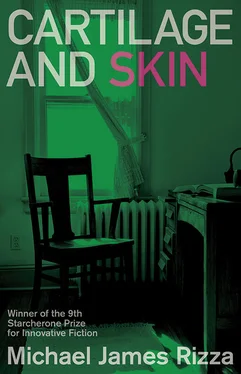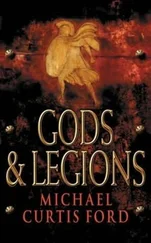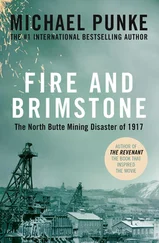Vanessa leaned across the table, as if to tell me a secret, so I bent down nearer to her.
“As soon as they’re old enough to drink, none of them will be here. They’ll go to bars instead.”
“Probably,” I said.
In the intimacy of leaning in toward one another over the table, Vanessa looked steadily at me, searching me. Because she gave me no indication that she would turn away, I felt somewhat obliged to keep my eyes on her — so both of us became fixed — and even though we appeared to be in an interlude of keen, probing consideration, I felt a little silly and uncomfortable. Perhaps normal people felt inclined to break the awkwardness of such moments with a kiss. Our spell, however, was broken by the chunky girl setting a tray on our table.
The gourmet coffee was as sweet as a milkshake, the long cookie as hard as bone. In fact, the only way to eat the biscotti was to let it soften in the creamy froth.
Vanessa began telling me anecdotes from her life. When she was a young girl, during an Easter egg hunt, she found a dead cat in a window well. Before this tale properly concluded, it segued into another story in which she and her “then-husband-at-the-time,” as she called him, were vacationing in Kentucky, to attend a horse show. They set up their tent in the far corner of a campsite, away from all the trailers. Every morning, an emaciated dog came up to the metal fence, and she fed it hotdogs through the diamond-shaped links. Without the fence, the animal probably would have starved because it was too savage to approach otherwise. Vanessa suspected that other campers complained about the dog because one morning it stopped showing up.
“Maybe it died,” I said.
Vanessa shook her head. “My ex- heard people talking about it. It was put down.”
I nodded thoughtfully, although I had no idea what the point of the story was. Perhaps Vanessa believed that conversation of any sort, regardless of the subject, was what united two people. After all, communication was the mantra of all the relationship gurus on the daytime talk shows. This might have been true, but still I had trouble keeping an interest in Vanessa’s stories. She started telling me about hoof and mouth disease, the West Nile virus, or some other kind of equine pestilence. A veterinarian walked through contaminated feces and carried the disease on the soles of his boots to healthy horses in a different stable fifty miles away.
Beside me, the two boys were working themselves to the idea that if opinions are a form of knowledge, then — following the same route as certainty and truth — opinions also didn’t exist.
“Then what’s in my head?” one boy asked.
“I don’t know. Reactions, maybe.”
“Reactions to what?”
“Impressions.”
“But then, who, or what, is doing the reacting?”
Although their topic was slightly more interesting than Vanessa’s, they often seemed baffled by their own reasoning. Whatever ground they gained on one point, they lost on another. Leaping vast stretches of time and excluding many thinkers and whole schools of thought, they traveled from Plato to Hume at the speed of language, and the combined acumen of both boys afforded them at best a cursory understanding of these two philosophers. One of the boys not only continually misquoted the author of The Book of Hebrews as saying, “Knowledge is the certainty of things unseen,” but also wrongly attributed the phrase to Peter.
I had a desire to write down the titles of a few books that might have helped them, or maybe to turn to them and explain some rudimentary ideas, giving them a stable starting point, such as that the line analogy and the allegory of the cave, when taken together, reveal the inverted correspondence between Platonic epistemology and ontology, thereby elevating opinions above a multitude of raw actions and the formless, mute shadows cast by effigies on a stone wall. These were the obvious and basic terms that I believed the boys woefully lacked, the most banal and traditional kind of topological imagination, against which our more contemporary, rhizomatically-inclined sophists rail. I felt I could quickly sketch the whole schema on a napkin for them. As Vanessa spoke, I continued to look at her and nod; meanwhile, I casually fished in my pocket for a pen and something to write on. When my hand touched the folded papers — the official dictum that granted men I didn’t know the authority to root through my belongings and my home — I felt anew the urge to run away. All the while I had been eating Mediterranean chicken and drinking chardonnay, strange men were dissecting my computer, following my virtual path over hills and valleys, and descending below the conspicuous level of playmates and pornstars, into the carnal pulp of the world’s subterrain. These men were not exactly thinking my thoughts after me or even pursuing the course of my mouse clicks, but sterilely uncovering the slow, cheerless delineation of my darkening descent.
Vanessa was in mid-sentence when I pulled out the folded sheets of paper and set them on the table. She appeared curious for a moment, as if she expected me to do something amusing or at least explain the papers.
“Okay,” she said, smiling at me.
Suddenly, I wanted to tell her about the boy, my bovine neighbor, and all the other reasons why I was afraid to return home, which had nothing at all to do with an ex-lover. I was a charlatan. I felt uneasy cultivating any further Vanessa’s false impression that I knew how to conduct myself, not just on the normal level of human affairs, but also as a lover.
“What’s that?” she asked about the papers.
“Just cleaning out my pockets,” I said. “Are you ready to go? I feel misplaced in here.”
“Sure.” She stood up from the table and began re-buttoning her coat.
“That’s sad about the dog,” I said, just to show her that I’d been listening.
She didn’t say anything as she took her gloves out of her pocket and put them back on.
“Do you want to hear a funny story about dogs?” I asked.
“Sure,” she said, and as she came around the table, I offered her my arm, which she casually accepted.
I began the story in the coffee shop, and outside on the sidewalk, as the snow lighted upon her shoulders and hair, I described for her the scrappy little mutt that incessantly yapped at everything. We slowed our pace, as if to prolong the moment, but eventually we reached the car. The snow had coated the windshield again, and now when we sealed ourselves inside, Vanessa turned the engine but left the car idling and the wipers off. I made the story vivid and even imitated the deep, solitary bark of the Husky. All the while I spoke, Vanessa looked at me and smiled. The wine seemed to have slowed her down a little and put a touch of giddiness in her voice. Whenever something amused her, she grabbed my wrist, and she especially liked how the little dog’s legs fluttered rapidly beneath its dirty belly as it ran. I skipped the part about the social worker’s dreadful office. Getting a bit caught up in the tale, I concluded by saying, “They led me right up to the door of your store. The hounds of destiny.”
“You’re a liar,” she said.
“No.”
“Then, at least, you’re an idiot.”
“Maybe.”
She looked at me with a mixture of happiness and feigned disapproval, and then her expression dissolved into something else as her smile faded and the luster of her eyes deepened beneath a more somber mood.
“You’re an idiot,” she repeated, and she turned away from me, but I knew she wasn’t actually insulting me because a low and sensuous note played within the sound of her voice.
The wipers came on, and the car started forward. We sat in silence. The pale darkness within the car seemed to be rendered fragile by the crisp air. I was uncertain where we were heading, but after a few moments, Vanessa asked where I lived, so she could take me home. I told her the address, and she continued in silence, making no reference to my renting a room or staying with a friend. Occasionally, I looked over at her as she kept her eyes on the fouled road. Without a word, she took one of her gloved hands from the steering wheel and calmly, without even a glance in my direction, placed her hand gently over the back of my hand, so our forearms rested side-by-side along the console.
Читать дальше












